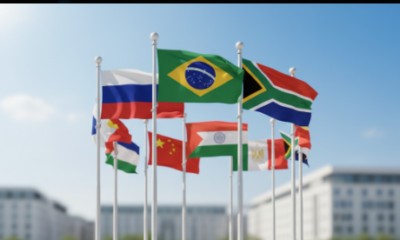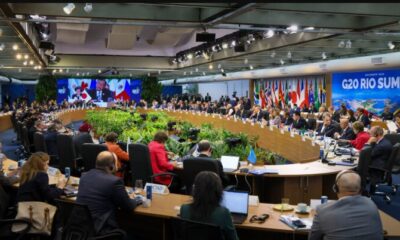World News
U.S. Envoy in Syria Says Not Enough Was Done to Avert Turkish Attack
-

 Entertainment7 days ago
Entertainment7 days agoNaftunes Productions: Shaping the Future of Animation in Kenya
-

 Tech3 days ago
Tech3 days agoThe AI Arms Race: How Cyber-Defenders are Using AI to Fight AI-Generated Threats
-

 Tech3 days ago
Tech3 days agoThe Invisible Hand of AI: How Machine Learning is Building the Resilient, Self-Healing Supply Chains of Tomorrow
-

 Business News1 hour ago
Business News1 hour agoBRICS Expansion: New Members, Currency Dreams, and a Bold Bid to Eclipse the West
-

 General News1 day ago
General News1 day agoLamine Yamal: The Teen Who’s Redefining Spanish Football
-

 General News21 hours ago
General News21 hours agoMigration & Refugee Crises: Europe and the Americas Grapple with New Humanitarian Pressures
-

 Business News34 minutes ago
Business News34 minutes agoGlobal South Rising: Africa, Asia, and Latin America Demand a Louder Voice in World Governance



